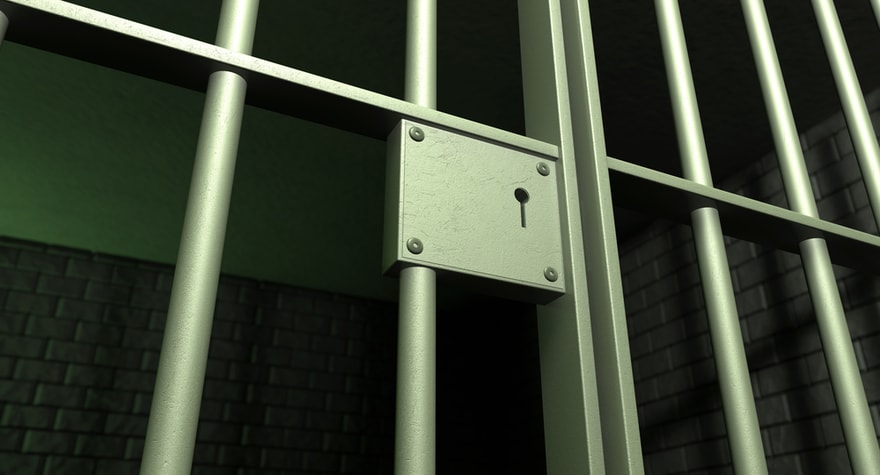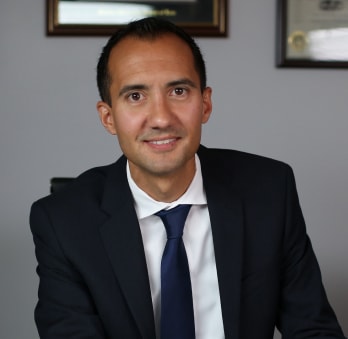
The duration of the vehicle stop depends on the initial reason for the traffic stop and any other criminal suspicion that develops after the stop.
According to the United States v., an investigative detention by the police during a traffic stop can vary in duration, typically lasting from a few seconds up to an hour. However, there is no strict time limit, as the duration must be temporary and should not exceed what is necessary to accomplish the purpose of the stop.
However, there is no concrete time limit for a lawful length of a traffic stop.
The police need to suspect other criminal activity separate from the reason for the initial traffic stop before they can continue to lawfully detain the vehicle beyond the time it would have taken to write a traffic citation.
Examples for Determining How Long Minnesota Police Can Detain You
In determining how long can police detain you, one factor to consider is the purpose of the stop. For example, if an officer pulls someone over for failing to use a blinker while turning, the officer cannot approach the vehicle and ask the driver if there are drugs in the car.
That would be an unlawful expansion of the reason for the traffic stop.
The officer stopped the vehicle for not using a blinker, not because he suspected there were drugs in the car.
Before the officer can expand the duration of the traffic stop, he would need a reason to believe there were drugs in the car.
If the officer thought he smelled marijuana in the vehicle, then he could question the driver about having drugs.
In this situation, the officer could detain the driver as long as the officer acted to confirm his suspicions of drugs in the car.
How long police can detain you or your vehicle increases with each additional suspicion of criminal activity.
How Long Should a Traffic Stop Last?
The duration of the traffic stop will depend on the facts and circumstances surrounding each individual traffic stop situation.
In one case, the Minnesota Supreme Court held a 61-minute traffic stop to be lawful under the circumstances.
If you find yourself in the middle of a traffic stop, it is important to remember that you DO NOT have to answer any of the officer’s questions.
You have the absolute right to remain silent.
In most cases, it is in your best interests not to answer any questions.
Instead, simply tell the officer that you are not going to answer any questions without a St. Paul, MN criminal defense lawyer present.
After that, call the St. Paul criminal defense lawyers at Arechigo & Stokka. Our Minnesota criminal defense lawyers will advise you on handling the situation and what to say, if anything.
Our Minnesota criminal defense lawyers will advise you on how to handle the situation and tell you what to say if anything.
If you find yourself arrested or facing criminal charges following your traffic stop, our St. Paul criminal defense lawyers will investigate the reasons behind the initial traffic stop and the officer’s reasons for expanding the length of the stop.
If the officer unlawfully expanded the duration of your traffic stop, our St. Paul criminal defense lawyers will fight to have the evidence suppressed.
DWI Case Dismissed
THE CASE: Client was charged with 4th Degree DWI following a bogus traffic stop. The arresting officer strongly believed the client was impaired, despite hardly any evidence to support her suspicions. The officer made the client take a portable breath test, known as a PBT. The client’s PBT result was only .02. The officer refused to let the client go, arrested him, and booked him into jail. The officer then convinced a Judge to authorize a search warrant for a blood draw. The blood test results convincingly proved the client was not impaired or under the influence of any substances at the time of his arrest.
CASE RESULT: We were able to convince the prosecutor that there was no evidence to support the arrest or the DWI charge. The prosecutor agreed and dismissed the case. We’re now in the process of sealing the client’s records.
Contact our Minnesota criminal defense lawyers today if you or someone you know recently faced an expanded traffic stop.
How Long Can the Police Detain You Without Charging You If You Were Arrested in Minnesota?
The Minnesota state constitution and the Due Process Clause of the Fourteenth Amendment to the U.S. Constitution do not allow police to detain you indefinitely if you were arrested in Minnesota.
The police must bring you to see a judicial officer or release you after a certain period passes. How much time the police have depends on the circumstances under which they arrested you.
You have the right to speak with counsel while you wait to go to court or await your release. You also have the absolute right to remain silent and not answer any questions beyond the standard booking questions.
If you find yourself in this situation, you should politely ask for a phone call to contact an experienced Minnesota criminal defense lawyer.
How Long Can You Be Held in Jail Without Charges?
Under Minnesota’s Rules of Criminal Procedure, how long can the police detain you without charging you depends on whether the police arrested you with or without a warrant.
According to the “speedy trial” rights, if law enforcement detains you, the prosecutor typically must decide on filing charges within 72 hours. This 72-hour time frame acts as a legal limit for how long the police can hold you without pressing charges.
How Long Can You Be Held in Jail After Police Arrested You?
Minnesota police have the authority to arrest you if they have probable cause to believe that you committed a crime. Probable cause exists if the reasonable person would believe the suspect committed the crime. Probable cause to arrest is a far cry from the “beyond a reasonable doubt” standard required for a conviction.
How Does the 36-Hour Rule Work in Minnesota?
You must appear before a judge within 36 hours after your arrest. The rule seems simple enough; however, figuring out when the 36-hour period ends is not straightforward.
Under Minnesota law, the 36-hour rule goes into effect at midnight the day after police arrested you. Thus, if police arrested you on Sunday at 1 PM, the clock does not start until 12 AM Monday morning.
You would then be due in court on Tuesday by 1 PM. Weekends and legal holidays do not count toward the 36 hours because courts are not open.
Minnesota’s 36-hour rule applies to most of the crimes in Minnesota. Therefore, police must bring you to court after an arrest without a warrant for a gross misdemeanor, felony arrest without a warrant, and any other misdemeanor.
Application of the 36-hour rule depends on the seriousness of the charges. A person under arrest for a felony charge could be held in jail longer “for good cause.” However, a police officer must release a person under arrest for a misdemeanor charge with a citation after 36 hours without appearing before a judge. The application of this rule does not affect the validity of the charges.
What Is the 48-Hour Rule in Minnesota?
Minnesota’s law requires that people held under arrest must have a judicial determination of probable cause within 48 hours of their arrest. The 48-hour timeframe begins when police formally arrest a suspect. This is different from the 36-hour rule, which starts at midnight of the day after an arrest.
The police must release the accused if 48 hours passes without a judicial determination of probable cause. However, the 48-hour period stops ticking when the judge finds probable cause or signs a complaint authorizing the police to detain the suspect longer. The 36-hour rule still applies.
The 48-hour rule does not stop for weekends or holidays like the 36-hour rule.
What Does It Mean to Be Arrested in Minnesota?
An arrest simply puts the criminal justice system in motion. After an arrest, the person appears in court to learn the nature of the charges and to have the court set conditions of release, if any.
Conditions of release may involve bail, bond, security, and conditions of pretrial supervision, such as no use of alcohol or drugs and no possession of weapons. The pretrial conditions often depend on the seriousness of the charges.
Four Methods of Bringing a Person to Court to Face Criminal Charges
When police formulate probable cause to make an arrest and seek criminal charges, they have to use one of four legal mechanisms to make sure you go to court. The police can:
- Issue you a citation that orders you to appear in court on a specified date;
- Lodge a complaint and ask the court for a summons—the police file complaints for less serious charges or non-violent offenses;
- Request a warrant for your arrest—law enforcement officers use this method when they do not have a person under arrest or after they investigated a crime and developed probable cause; or
- Place a suspect under arrest without a warrant—this option is available to police if they witness a crime or have probable cause to believe the suspect committed a crime.
Remember that an arrest is not the same as a conviction. However, you must ask to speak to a lawyer immediately and not answer any questions as soon as the police place you in handcuffs.
Contact Arechigo & Stokka for More Information About How Long You Can Be Held in Jail Without Charges
If you or a loved one is under arrest, you must contact a Minnesota criminal defense lawyer who has a wealth of experience defending criminal charges.
You have rights if you were arrested in Minnesota, and the criminal defense attorneys from the Criminal Defense Attorney & Workers’ Compensation Law Offices of Arechigo and Stokka are ready to defend you.
With a St. Paul criminal defense lawyer from Arechigo and Stokka, you can be sure that you have a law firm with decades of legal experience and a documented track record of success to prove it.
Call us at 651-888-8607 or visit our website to schedule your free consultation with the award-winning Arechigo and Stokka today.



